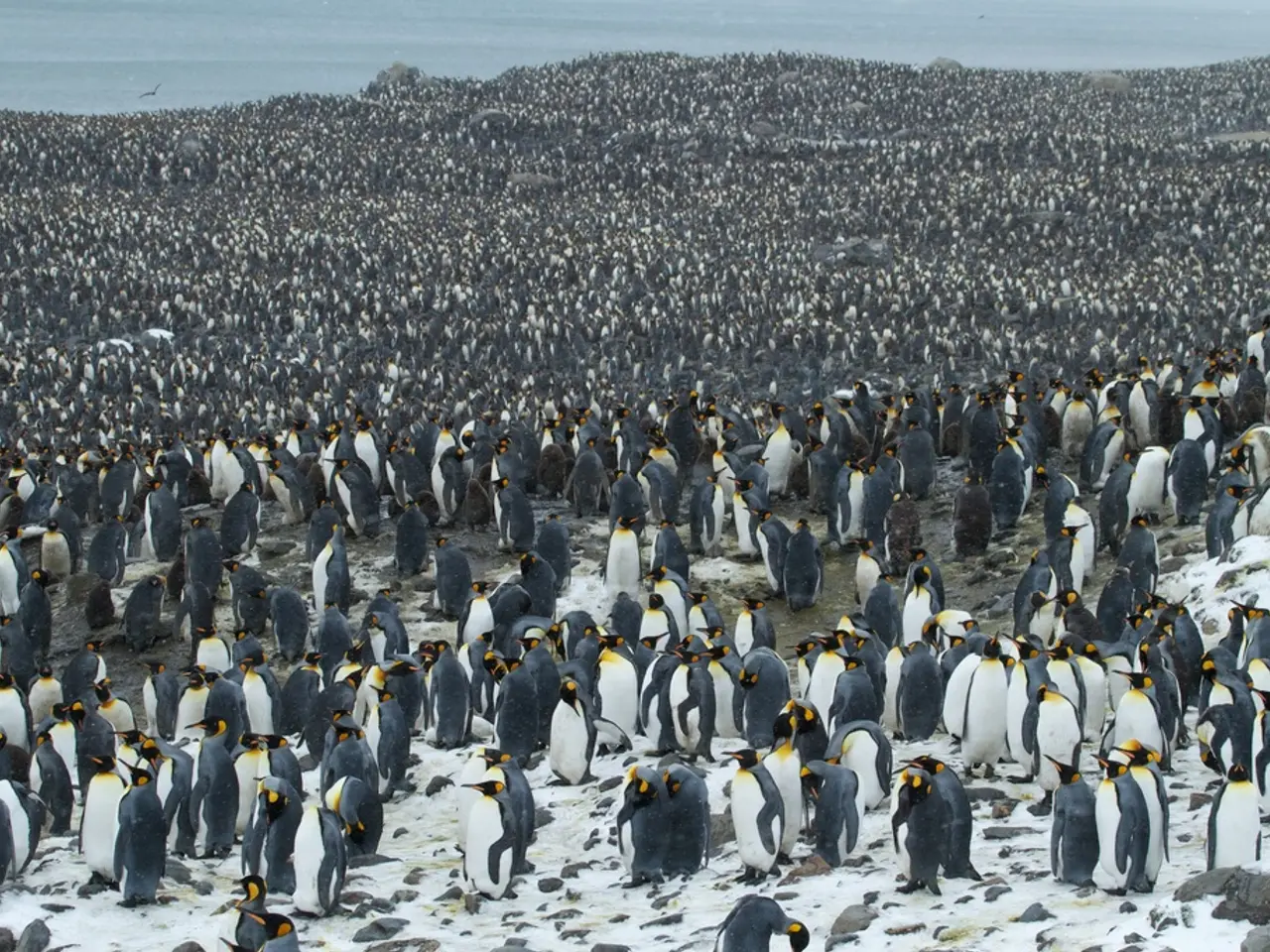Dramatic shifts in Antarctica portend severe impacts on the future for humankind
In a chilling warning, a study published by the Australian National University (ANU), the University of New South Wales (UNSW), and researchers from Jena and Potsdam, along with lead author Nerilie Abram, chief scientist of the Australian Antarctic Division (AAD), has highlighted potential catastrophic consequences due to rapid changes in Antarctica's ice, oceans, and ecosystems. The research, titled "Emerging evidence of abrupt changes in the Antarctic environment," was published in Nature in 2025.
The study underscores the interconnected nature of these changes, which are likely to further increase pressure on global climate, sea levels, and ecosystems. One of the most immediate concerns is the impact on Emperor penguins, with their extinction risk escalating due to the loss of Antarctic sea ice. Some Emperor penguin colonies have experienced several breeding failures in the last decade, and the loss of entire chick colonies around the Antarctic coast has been observed due to earlier sea ice breakouts.
Changes in the Antarctic environment could also have devastating consequences for the region's wildlife and marine ecosystems. The survival and reproductive capacity of krill and several other penguin and seal species as adults is threatened. Moreover, important phytoplankton species are increasingly affected by warming and acidification of the oceans.
Abram warns that further changes to the Antarctic continent, such as the loss of Antarctic ice shelves and threatened parts of the Antarctic ice sheet, could soon become unstoppable. A collapse of the West Antarctic Ice Sheet (WAIS) would endanger coastal cities and communities worldwide and have catastrophic consequences for future generations, raising sea levels by more than three meters.
Another potential risk is a collapse of the Antarctic overturning circulation, which would prevent essential nutrients from being returned to the surface where biological systems depend on them. Rapid changes in Antarctic ice, oceans, and ecosystems have already been observed and will intensify with each fraction of a degree of global warming.
Abram emphasises that existing efforts under the Antarctic Treaty System alone will not be sufficient to avoid climate-induced impacts. She urges governments, businesses, and communities to incorporate the changes now being observed into their future planning for the impacts of climate change.
The only way to avoid further abrupt changes and their far-reaching consequences is to reduce greenhouse gas emissions quickly enough to limit global warming to a maximum of 1.5 degrees Celsius. British researchers from Swansea University have recently studied the detachment of one of the largest icebergs from Antarctica, underscoring the potential global sea-level rise consequences of such events.
In light of these findings, it is crucial for all stakeholders to act urgently and collaboratively to mitigate the risks posed by the rapid changes in Antarctica's environment. The stakes are high, and the window for action is narrowing.
Read also:
- Apparition's Significance and its Delivered Messages - as discussed by Sensenmann
- Explored the Popular Health Assessment with a Queue of 100,000 Aspiring Participants - Here's My Unadulterated Opinion
- Hearing impairment condition: Recognizing symptoms and management approaches
- Exploring Recurring Actions in Mature Individuals: An Analysis of Persistent Actions in Adults' Daily Lives








